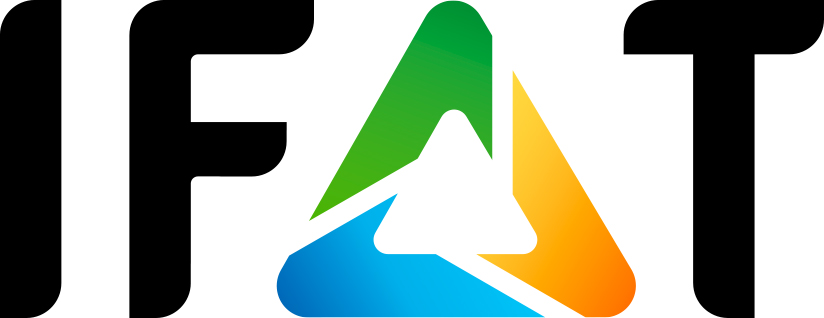Start-ups as environmental industry innovators
The Start-up Area at IFAT Munich 2022 will provide a separate forum for around 50 emerging companies to present their forward-looking technologies and business models. Below you will find three examples illustrating the variety of products and solutions that will be presented there.
The social challenges in the areas of climate change, environmental protection and resource efficiency also increase the need for innovative environmental technology solutions. “Here, for some years now, more and more company founders have been found among the masterminds,” Bruno Rudnik knows. The Managing Director of SusTech Consult, a Munich-based consultancy specializing in sustainable technologies, continues: “It is therefore only logical that Messe München will once again offer start-ups their own forum at IFAT Munich 2022. However, this time it will be particularly large.” So, around 50 start-up companies will fill the exhibition area and the Start-up Area's “Innovation Stage” with life at the world's leading trade fair for water, sewage, waste and raw materials management.

Waste analysis with AI and machine learning
Among them will be Greyparrot, a British company that uses artificial intelligence (AI) and machine learning to revolutionize the waste sorting process. The system features a monitoring unit that can be retrofitted above conveyors in sorting facilities and a live dashboard that delivers real-time waste composition information, which can also be fed into any third-party computer programs and sorting machines.
Currently, the AI-analyzed camera images enable the classification of 50 types of waste—with an error rate of less than one percent. The Greyparrot system uses textures, colors, shapes, reflections, sizes and patterns to recognize the objects.
One important area of application is the continuous, automated monitoring of material quality in waste and plastic sorting plants. For example, Austria's largest packaging waste collection and recycling company, ARA AG, uses the system to ensure the quality of the secondary materials it trades.
Greyparrot’s CEO Mikela Druckman explains: “Previously, the industry used to make decisions based on guesswork about the composition of waste streams; we're replacing that with data-driven transparency. The system can increase recovery rates, reduce costs associated with manual sampling, improve product quality, and provide detailed reporting for commercial or regulatory compliance.”
Analytical technology optimizes gassing in aeration basins
Along with waste management, the treatment of wastewater has always been one of IFAT's key topics. Among other things, wastewater treatment plants use microorganisms to biodegrade the contaminants in the wastewater. For the bacteria to feel comfortable and do their work, they need oxygen. Too little oxygen added to the tank will kill the bacteria; too much will increase energy costs without increasing yield. Additionally, wastewater treatment plants can produce gases that are harmful to the climate, such as methane or nitrous oxide, also known as laughing gas.
That is one of the operational settings for the patented real-time analytics of the start-up Variolytics located in Stuttgart, Germany. The analysis platform, which relies on mass spectrometry, helps monitor the greenhouse gases produced in the aeration basins and the measured values and special control strategies allow the aeration to be permanently adjusted. “This not only enables operators to protect the climate, but also to reduce energy consumption by up to a quarter,” says the company's founder, Dr.-Ing. Matthias Stier.
For this, Variolytics GmbH is cooperating with Aquatune GmbH from Hahnstätten, Germany, which specializes in intelligently optimizing water and wastewater processes. Its General Manager and a pioneer in machine learning, Dipl.-Phys. Dr. Jörg Gebhardt, was so impressed by the Stuttgart-based start-up's solutions for controlled and optimized gassing in aeration basins that he decided to support the young company as a business angel.
Sustainable dust control thanks to applied biotechnology
During the extraction and processing of many raw materials, for example in mining, the dusts generated can have a negative impact on the health of employees, the environment and the productivity of companies. Existing dust control methods are usually environmentally and economically problematic, for example, due to the use of chemicals or high water consumption. The biotechnology company Bind-X developed a process based on microbiologically induced calcite precipitation as an environmentally friendly and effective alternative.
First, the company's specialists based in Martinsried near Munich in Germany roughly classify the soils and environmental conditions present at the dust sources, for example, the spoil heaps. “We then deliver a powder that contains a microbiological and a nutrient component,” Martin Spitznagel describes. The founder and CEO of Bind-X continues: “By adding water, this is used to create a liquid on site and can then be applied with commercially available equipment such as spray trucks, water centrifuges or sprinkler systems.” The bio-geochemical process induced then forms a solid, natural crust that can suppress the formation of dust for up to twelve months.
According to Spitznagel, Bind-X products are not only used in the raw materials or construction industries, but also in photovoltaic plants to prevent unwanted dust deposits. And the technology offers agriculture an environmentally friendly way to prevent weed growth.
